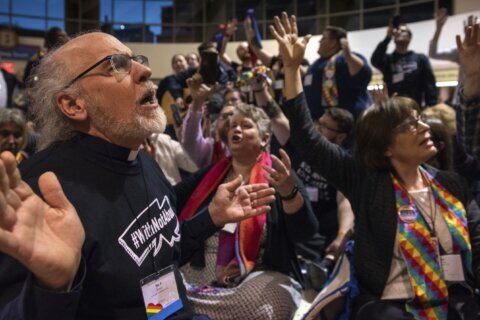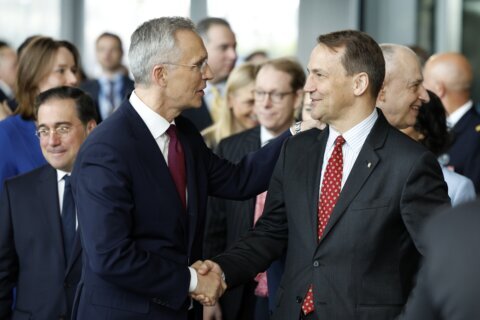PARIS (AP) — The only surviving suspected member of the Islamic State attack team that terrorized Paris in 2015 pleaded for leniency during his final appearance in court on Monday, acknowledging he had “made mistakes,” but declaring: “I’m not a murderer.”
Salah Abdeslam is a leading suspect in France’s worst peacetime attacks of Nov. 13, 2015, that killed 130 people. He is on trial with 19 other men on suspicion of playing critical roles in the Islamic State’s massacres in a Paris music hall, cafes and the national stadium that Friday night.
In closing arguments earlier this month, French prosecutors demanded a life sentence without a possibility of parole for Abdeslam. They charged him with multiple counts of murder, complicity to murder, belonging to a terrorist organization and taking part in a conspiracy to commit murder and kidnapping as a member of a terrorist organization.
A verdict in the historic trial is expected on Wednesday.
Abdeslam apologized to the victims on Monday, saying his remorse and sorrow for the 130 people killed and more than 400 wounded is heartfelt and sincere.
“Who can make an insincere apology for so much suffering?” Abdeslam said. He acknowledged he has made mistakes, but declared: “I am not a murderer, I am not a killer.”
Abdeslam stayed silent about what happened on Nov. 13, 2015. Since his trial opened in September, he had a few outbursts of extremist bravado, but refused to answer most questions.
In April, his words started flowing and he gave a lengthy testimony over several days that at times contradicted earlier statements, including on his loyalty to the Islamic State.
As the only member of the Paris attackers who did not join the self-proclaimed IS caliphate in Syria, he told the court that he was a last-minute add-on to the group. He said he “renounced” his mission to detonate his explosives-packed vest in a bar in northern Paris the night of Nov. 13 as his brother and other Islamic State extremists fanned out around the capital mounting parallel attacks.
A police explosives expert has told the court that the suicide belt was faulty, but Abdeslam testified that he disabled it.
After leaving the café, Abdeslam described desperate attempts to reach friends to ask for help, and taking a taxi across Paris to the suburb of Montrouge. He hid out at first near Paris, and then fled with friends to Brussels, where he was arrested four months later.
Demanding the harshest sentence under French law, prosecutors emphasized those contradictions in Abdeslam’s testimony – from pledging allegiance to ISIS at the start of the trial and expressing regret that the explosives failed to detonate to claiming he had changed his mind in the bar and deliberately disabled explosives strapped on his body because he did not want to kill people “singing and dancing.”
“Not everyone is a jihadi, but all of those you are judging accepted to take part in a terrorist group, either by conviction, cowardliness or greed,” prosecutor Nicolas Braconnay told the court earlier this month.
During her closing arguments on Monday, Abdelslam’s lawyer Olivia Ronan told a panel of judges that her client is the only one in the group of attackers who didn’t set off explosives to kill others that night. He can’t be convicted for murder, Ronan said.
“If a life sentence without hope for ever experiencing freedom again is pronounced, I fear we have lost a sense of proportion,” Ronan said.
——
Surk reported from Nice, France
Copyright © 2024 The Associated Press. All rights reserved. This material may not be published, broadcast, written or redistributed.







